Uncategorized
-
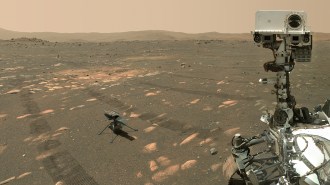 Planetary Science
Planetary ScienceMars has two speeds of sound
High-pitched clacks from a laser on NASA’s Perseverance rover zapping rocks traveled faster than the lower-pitched hum of the Ingenuity helicopter’s blades.
By Liz Kruesi -
 Tech
Tech50 years ago, the future of solar energy looked bright
In the 1970s, scientists and engineers were coming around to the idea of “farming” the sun’s energy on a large scale.
By Aina Abell -
 Animals
AnimalsHow do we know what emotions animals feel?
Animal welfare researchers are studying the feelings and subjective experiences of horses, octopuses and more.
-
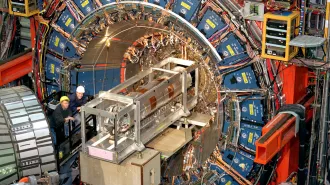 Particle Physics
Particle PhysicsThe W boson might be extra hefty. If so, it could hint at new physics
A new measurement of the W boson’s mass, made by smashing particles together, reveals a potential crack in physics’ standard model.
-
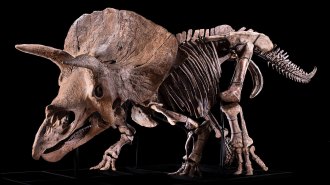 Paleontology
PaleontologyA hole in a Triceratops named Big John probably came from combat
The nature of the wound and signs of healing suggest that the dinosaur's bony frill was impaled by a Triceratops rival.
By Anna Gibbs -
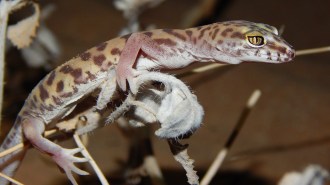 Animals
AnimalsHow a western banded gecko eats a scorpion
New high-speed video details how usually mild-mannered geckos shake and incapacitate their venomous prey.
-
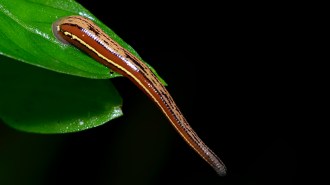 Animals
AnimalsLeeches expose wildlife’s whereabouts and may aid conservation efforts
DNA from the blood meals of more than 30,000 leeches shows how animals use the protected Ailaoshan Nature Reserve in China.
By Nikk Ogasa -
 Health & Medicine
Health & MedicineWhat we learned about COVID-19 safety from a NYC anime convention
November’s Anime NYC convention was not a COVID-19 superspreader event, which means there are lessons to be learned.
-
 Health & Medicine
Health & MedicineRacial bias can seep into U.S. patients’ medical notes
Black patients were more often described negatively in medical notes than white patients, which may impact care.
-
 Astronomy
AstronomyA star nicknamed ‘Earendel’ may be the most distant yet seen
Analyzing Hubble Space Telescope images revealed a star whose light originates from about 12.9 billion light-years away, researchers say.
By Liz Kruesi -
 Climate
ClimateA UN report says stopping climate change is possible but action is needed now
We already have a broad array of tools to reduce global greenhouse gas emissions in half by 2030, a new report finds. Now we just have to use them.
By Carolyn Gramling and Nikk Ogasa -
 Health & Medicine
Health & MedicineWe can do better than what was ‘normal’ before the pandemic
With all that people have endured, it would be a missed opportunity to toss aside what we’ve learned from the COVID-19 pandemic.